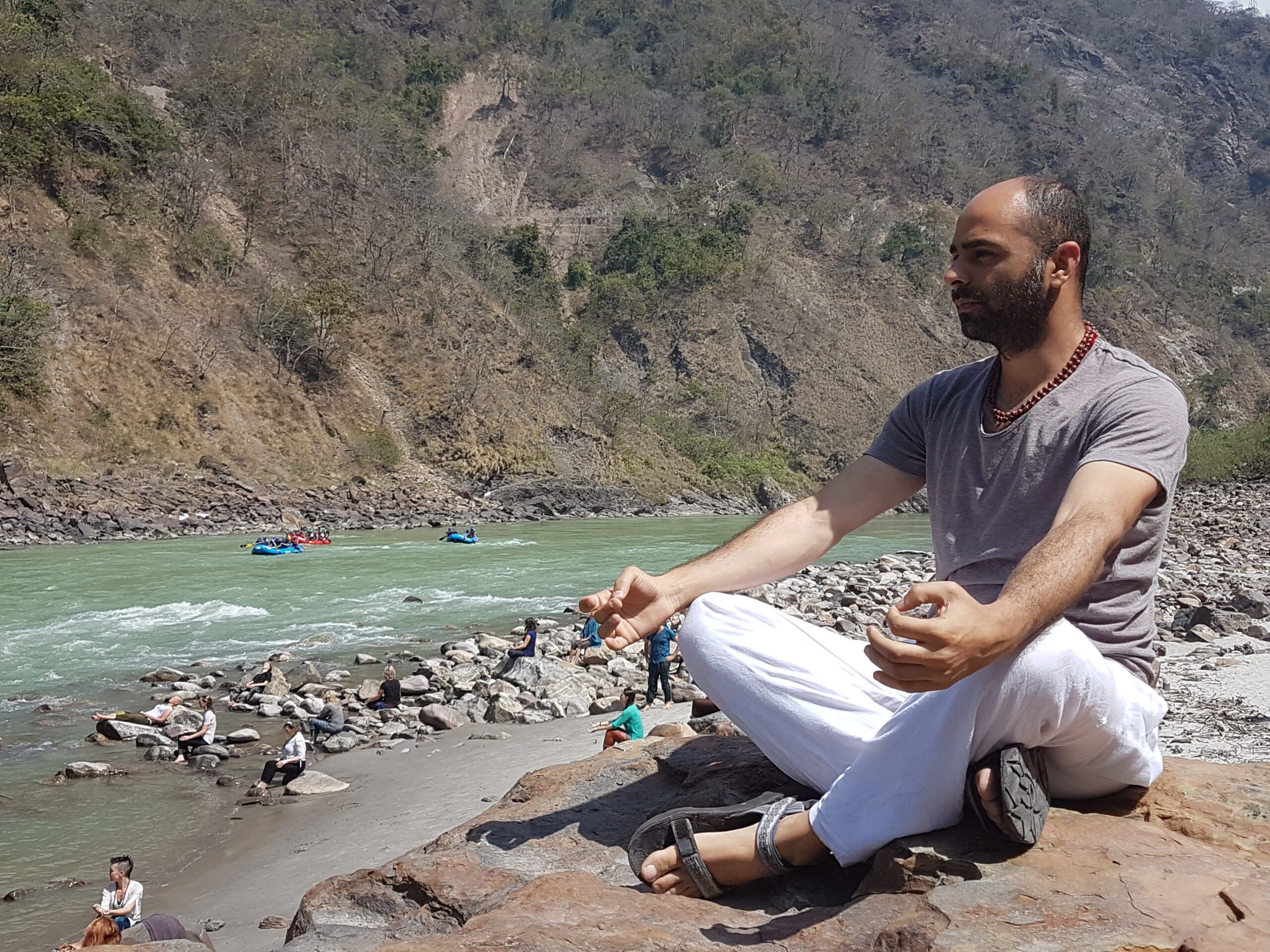Two Weeks in Rishikesh – Where the Soul Learns to Breathe
Two Weeks in Rishikesh – Where the Soul Learns to Breathe
India
- Written by Roi Alfassi
- Updated April 2025
It began the moment I stepped off the train and felt the air change. It was different — lighter, calmer, almost sacred. Rishikesh, the city resting on the banks of the Ganges, welcomed me as if I had been expected all along. There was something powerful yet peaceful in its rhythm, a kind of stillness that seemed to whisper, “You’re exactly where you need to be.”
During those first few days, I listened to the bells ringing from distant temples, to the voices chanting mantras in the streets, and to the sound of the river that seemed to follow me everywhere. At night, oil lamps floated down the water, carrying prayers and hopes, and I stood by the banks feeling an unfamiliar sense of calm. Rishikesh was not just a place to visit; it was a place to remember what silence sounds like.
The First Days – Finding Stillness in the Noise
My first few days were full of color and noise. The narrow streets were alive with pilgrims, holy men, and cows moving together as if part of an endless rhythm. The air vibrated with chanting and the smell of spices. Yet within that chaos, I felt peace. There was harmony in the movement, as if the entire city breathed in unison.
I found a small guesthouse near the Laxman Jhula bridge, with a view of the river that glowed golden every morning. The owner, an old man with a soft voice and kind eyes, brought me chai each sunrise. From my balcony, I watched the Ganges flow gently below, while people bathed, prayed, and released small candles onto the water. Each light drifted away like a tiny wish, and I found myself wondering what hopes they carried.
One afternoon I met a group of travelers at a nearby café. We sat on low cushions, shared laughter, and spoke about life, fear, and freedom. Someone played a guitar, and the sound mixed with the hum of the street. That evening, as I walked back along the river, I realized that Rishikesh had already started to change me.
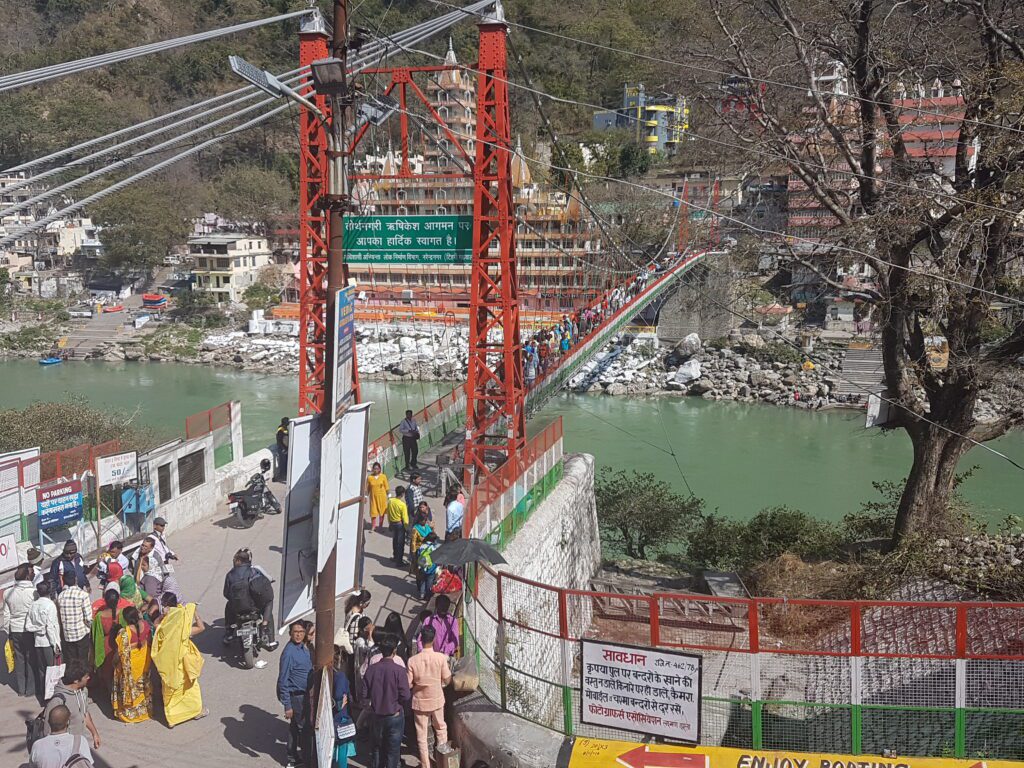
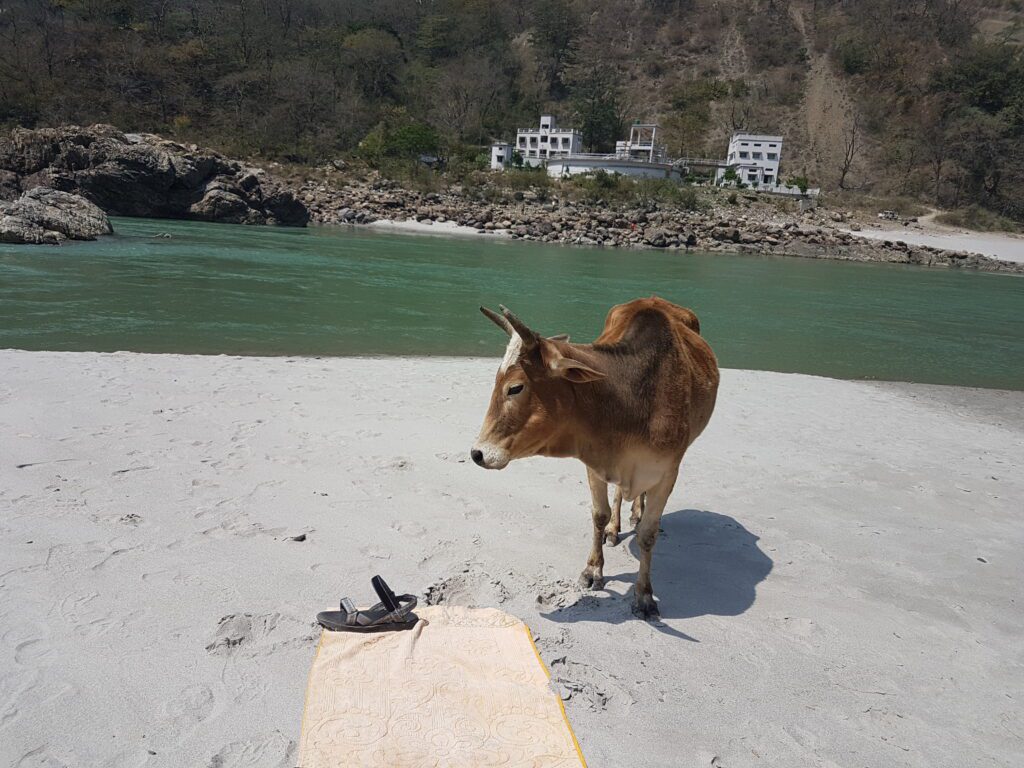
The River – The Heartbeat of Rishikesh
Jaipur’s soul reveals itself slowly, one archway at a time. Inside the City Palace, I wandered through courtyards wrapped in silence and elegance, each marble corridor whispering the stories of maharajas who once ruled this desert kingdom. The light filtered through delicate latticework, casting patterns that felt alive.
At the Hawa Mahal, or Palace of Winds, the afternoon breeze carried centuries of women’s laughter, royal queens who once gazed unseen at the streets below. As I stood there, watching life unfold in the bazaar, I understood something essential about India. It preserves the past not by locking it away, but by letting it breathe alongside the present.
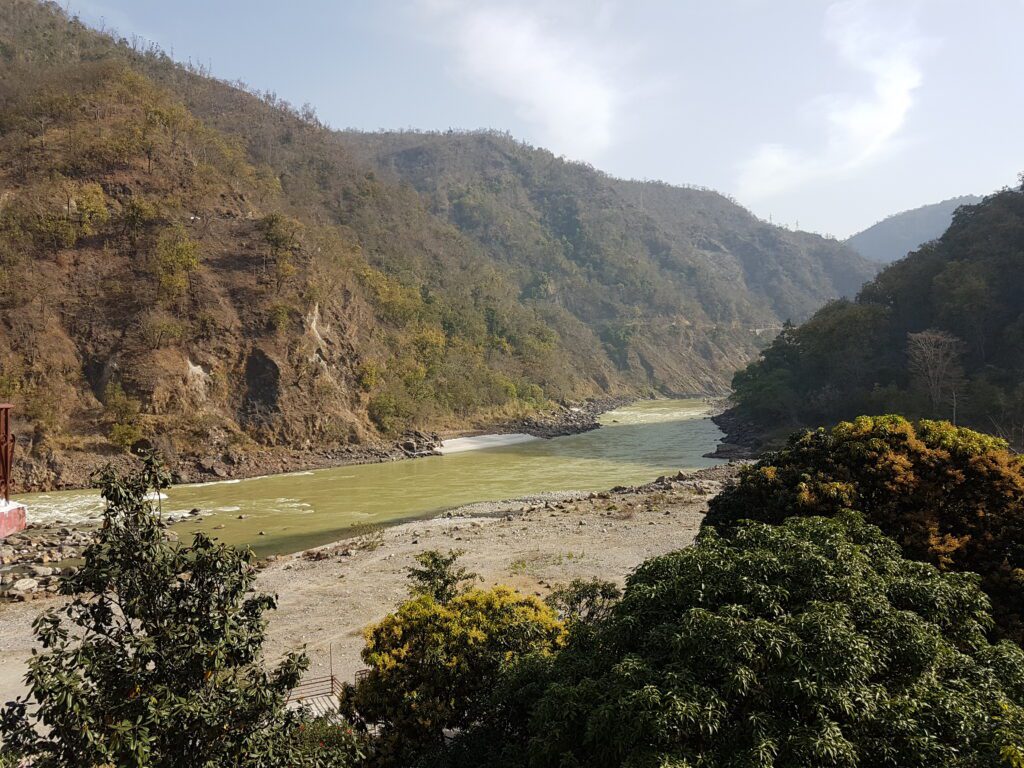
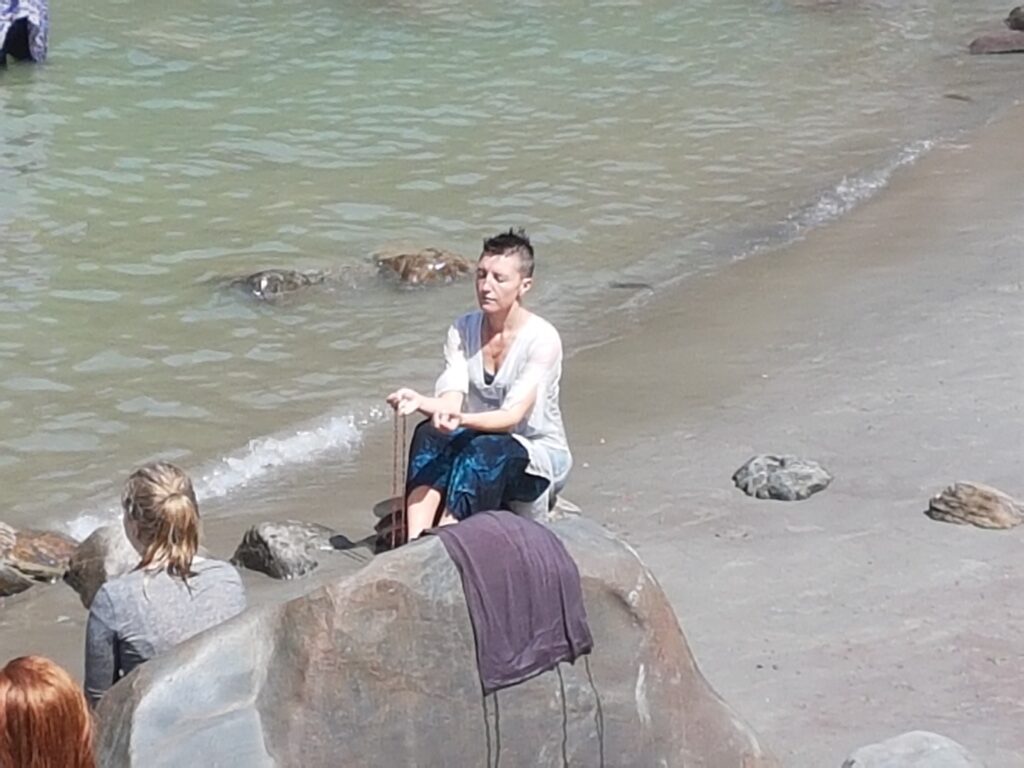
The Retreat – A Week with Paul Chati
A few days later, I joined a retreat guided by Paul Chati. The ashram was simple and surrounded by trees. Birds sang at dawn, and the sound of the river could be heard even from our rooms. We rose before sunrise and practiced meditation in complete silence as the first light touched the mountaintops.
Days were structured but calm. We practiced yoga, learned to breathe with intention, and ate quiet vegetarian meals prepared with care. Each of us took part in small chores. Some worked in the garden, others helped cook or clean. This was karma yoga — the practice of serving without expecting anything in return. At first it felt like routine, but soon it became a form of prayer. Each task reminded me that purpose can be found in simplicity.
Evenings were the most beautiful time. We gathered in a circle, lit candles, and sang together. Our voices blended into a single melody that filled the room with warmth. Sometimes I closed my eyes and let the sound carry me away. It was not just singing. It was a connection.
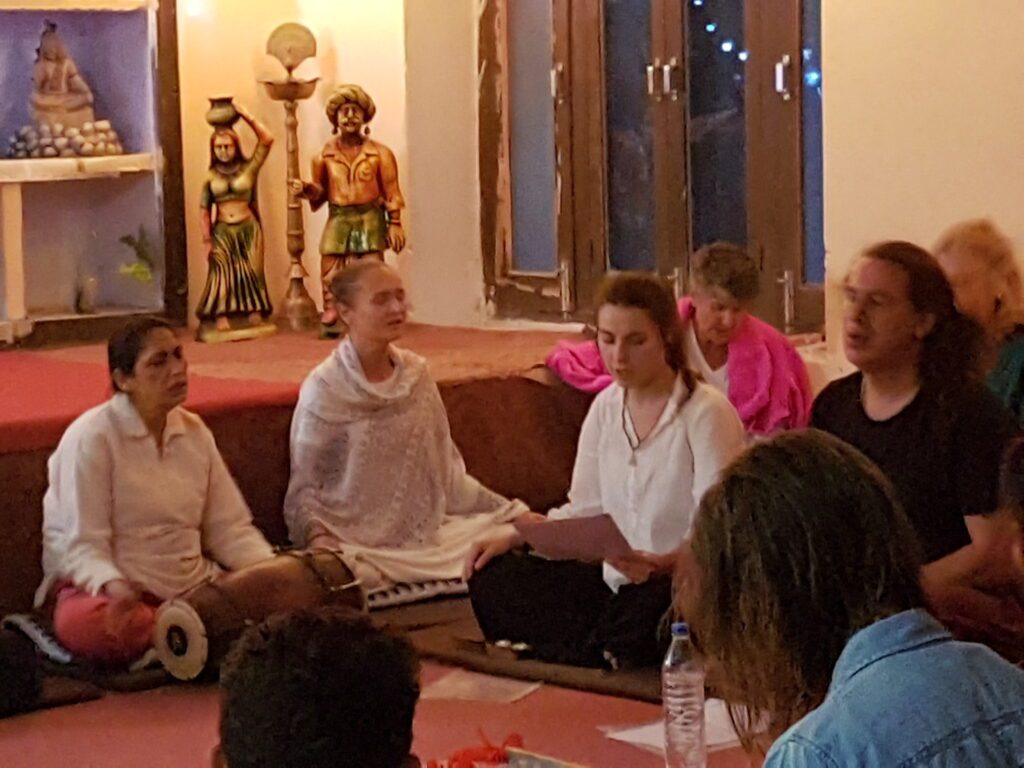
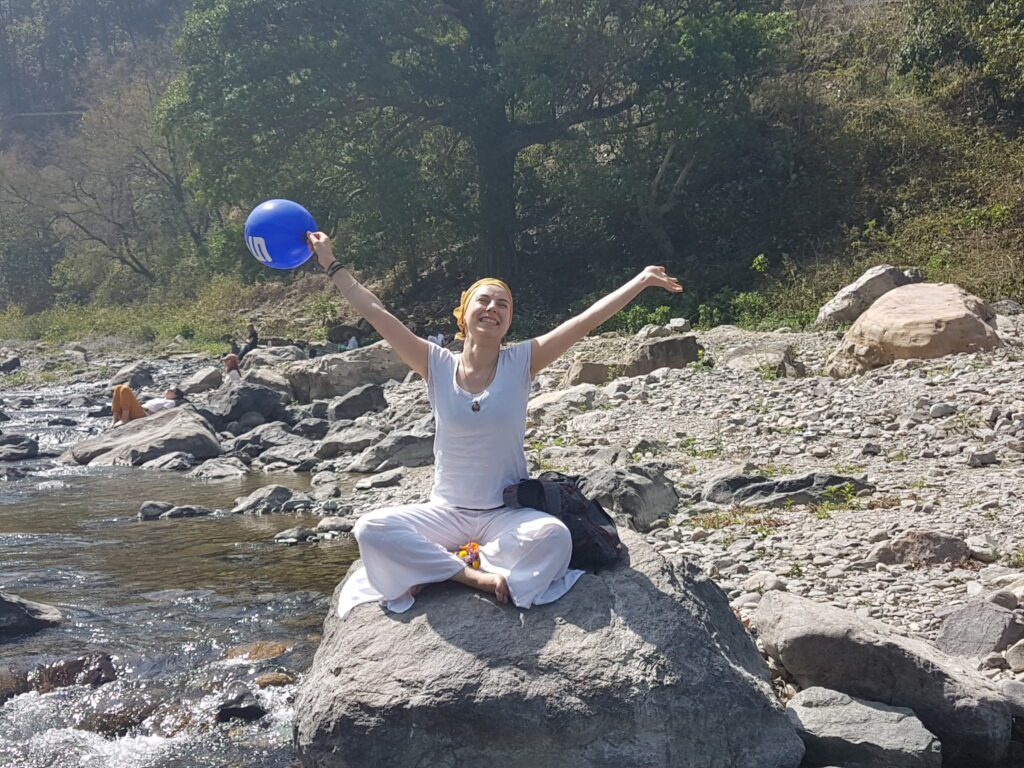
Nature and the Silence of the Hills
When the retreat ended, I stayed with a few friends I had met there. Together we explored the nature around Rishikesh. We walked for hours through forests where monkeys jumped between the branches and sunlight filtered through the leaves.
One morning we found a hidden waterfall deep in the woods. The path was long and steep, but when we reached it, the sight took my breath away. The water fell from high above, forming a pool so clear that we could see every stone beneath. We swam in the cold water, laughing and shouting like children. It felt as if every drop washed away something heavy from my soul.
Later, we sat quietly on the rocks, listening to the sound of the falls. The air smelled of earth and rain. In that stillness, I understood something important — silence is not empty. It is full of answers we are too busy to hear.
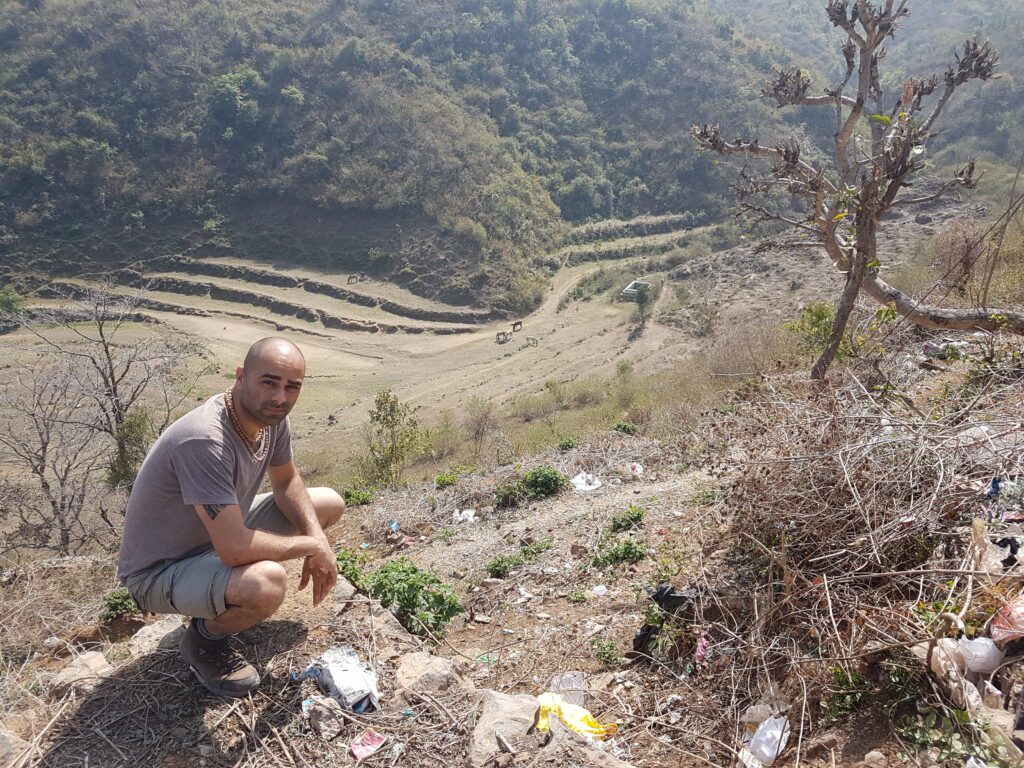
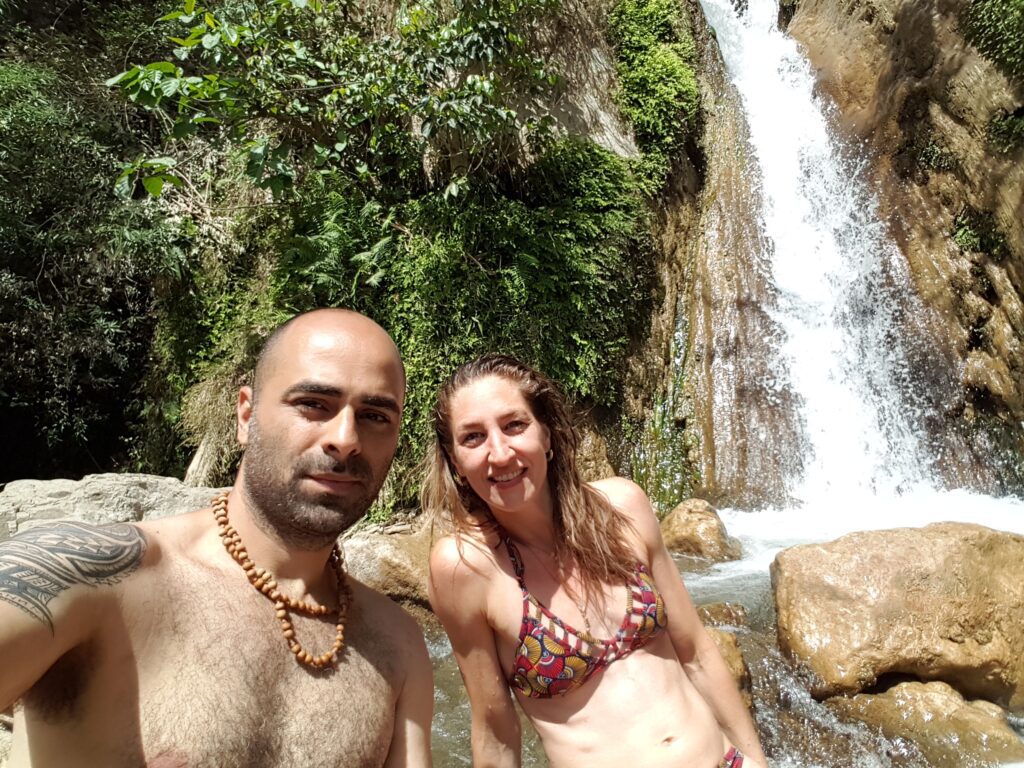
Find the Best Tours in Rishikesh
Rafting on the Ganges – Learning to Flow
A few days later, we traded meditation mats for paddles and helmets. Rafting down the Ganges was a completely different kind of experience. The river was wild and alive, pulling us forward with strength and grace. The rapids made us shout and laugh, but between them there were moments of quiet when we drifted in peace.
As I floated on my back, I looked up at the sky and felt the sun on my face. The Ganges carried me effortlessly, and I thought about how life works the same way. We fight the current until we remember that sometimes the only way forward is to let go.
That river taught me more about faith than any book or lecture ever could. It taught me that surrender is not weakness. It is trust.
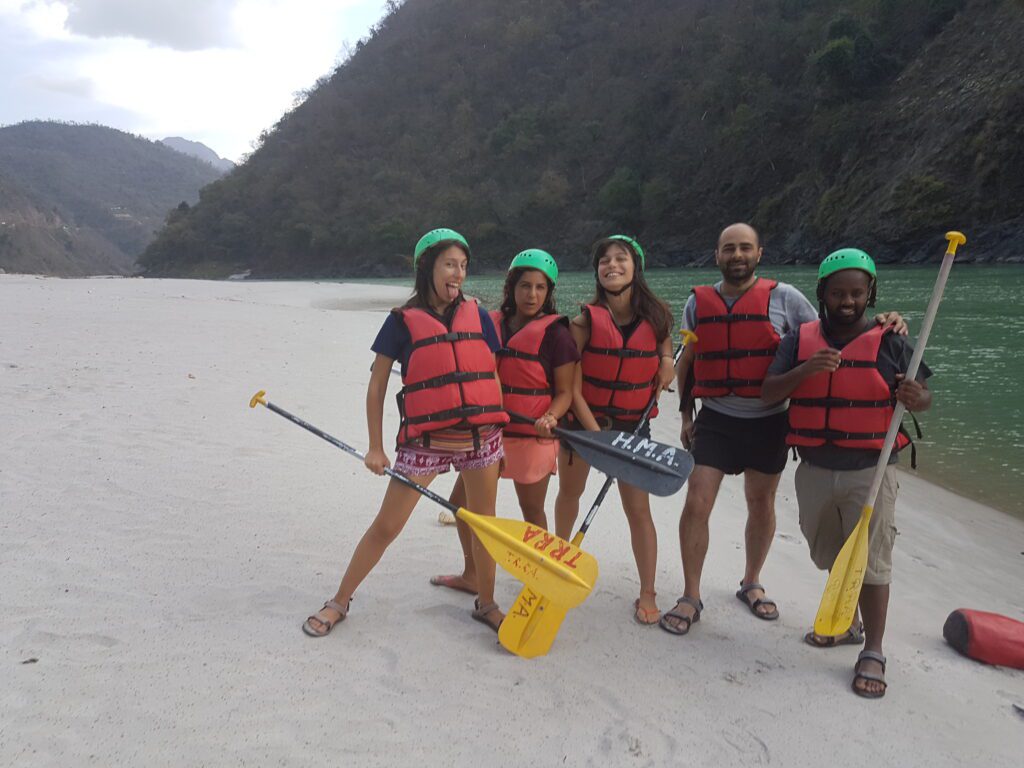
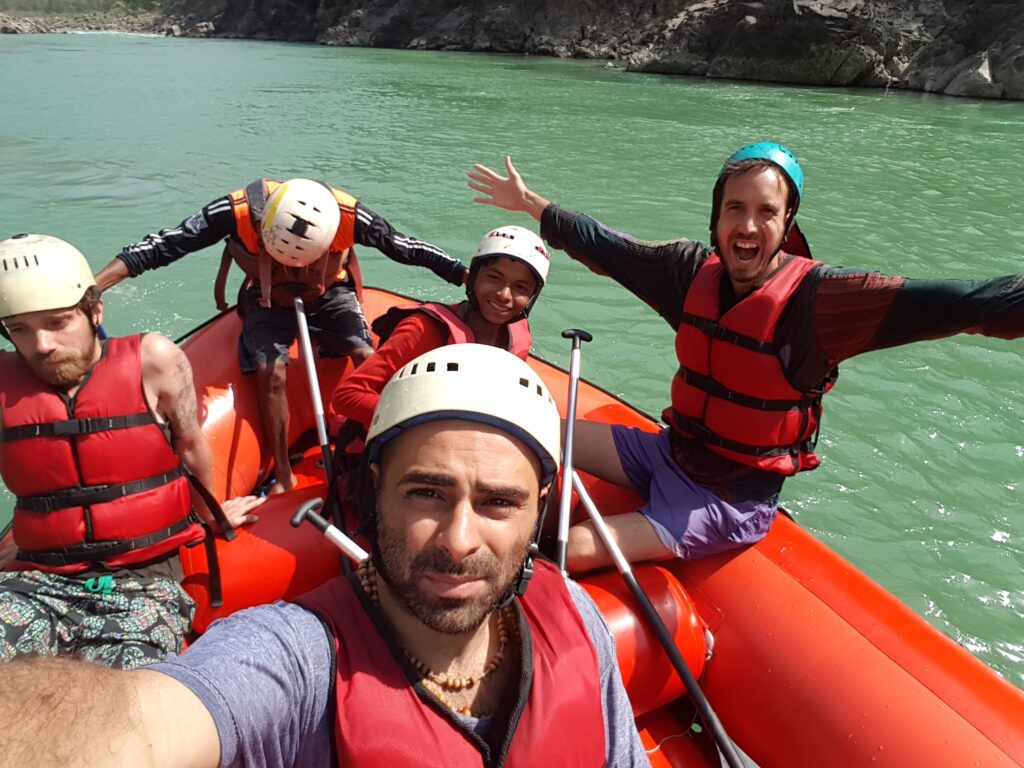
New Friends and Shared Moments
The beauty of Rishikesh was not only in its landscapes but also in the people it gathered. Every evening a small group of us met to share music, stories, and simple meals. We sat on the floor surrounded by candles and laughter. Someone would pick up a guitar, another would hum a melody, and together we would fill the room with songs that needed no translation.
These connections felt genuine. There were no masks, no roles, just people meeting in truth. We came from different countries, spoke different languages, yet somehow we understood each other completely.
The streets became a living painting. Drums pounded, clouds of color exploded in the air, and for a few hours, every barrier dissolved, race, age, religion, all forgotten in the name of celebration. I remember looking around, covered in color, realizing that sometimes chaos isn’t meant to be controlled. Sometimes it’s meant to be embraced.
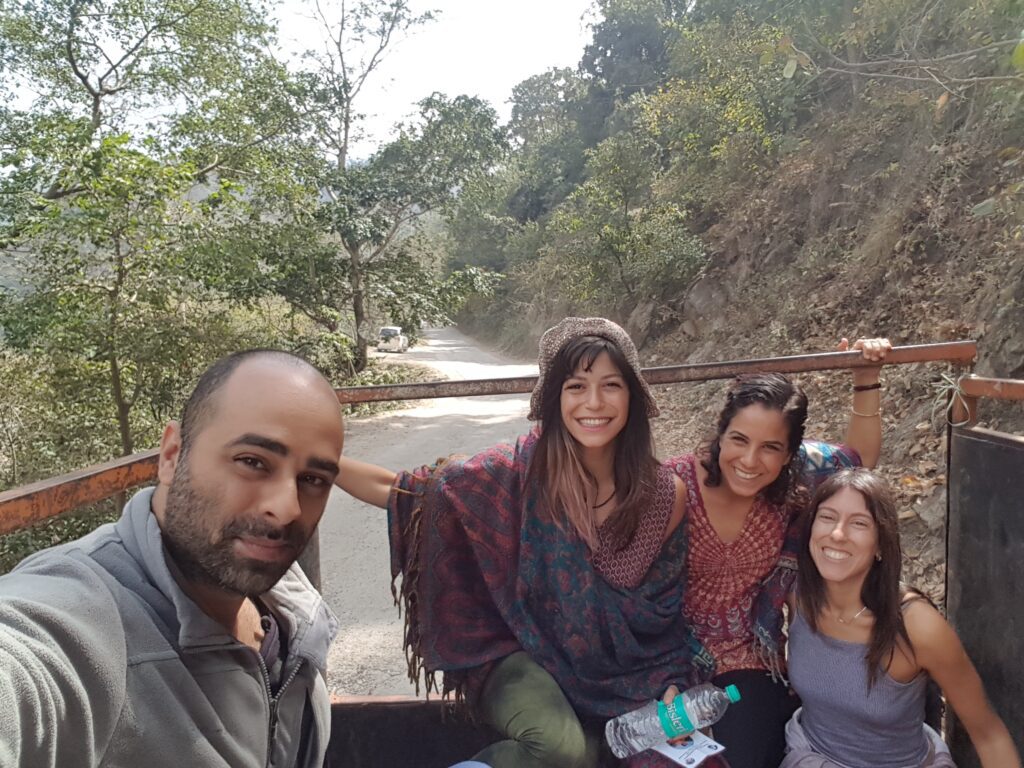
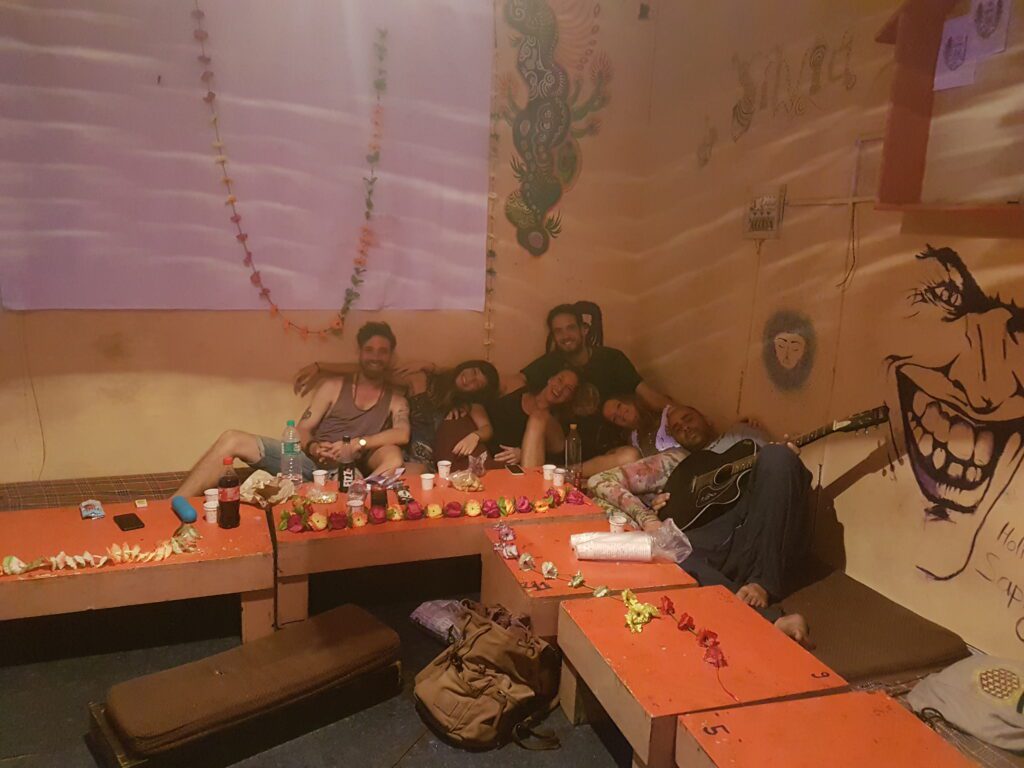
The Farewell: What Remains
On my final evening, I returned to the river alone. The sun was low, turning the water gold. I lit a small candle, placed it inside a clay bowl filled with petals, and set it gently on the surface. I watched it drift away among hundreds of other tiny lights. Each one carried a story, a prayer, or a silent thank you.
In that moment I understood what Rishikesh had given me. It was not a revelation or an answer. It was presence. It was the art of being still, of breathing deeply, of seeing beauty in what is simple.
As the train left the next morning, I looked back at the mountains fading into the distance. I felt lighter, softer, and grateful. Rishikesh had taught me that spirituality is not found in faraway places but in the way we live, the way we listen, and the way we love. It lives in kindness, in laughter, and in the quiet rhythm of the river that continues to flow long after we are gone.

